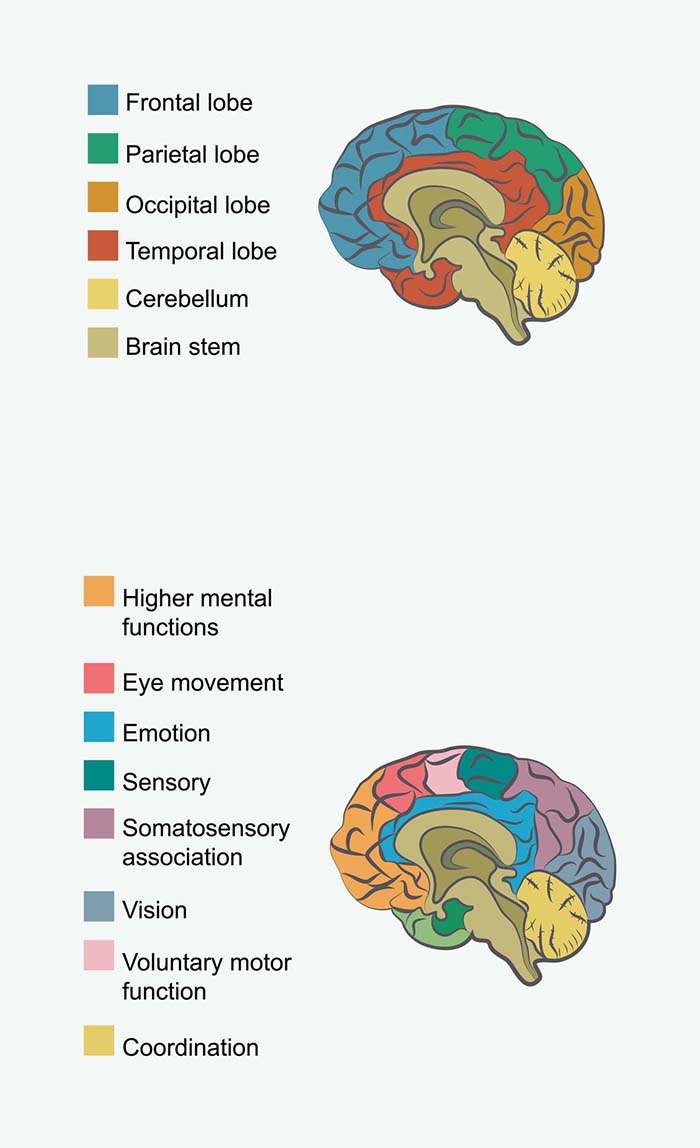A neuropsychological evaluation assesses an individual’s cognitive profile using an array of comprehensive and objectively validated measures. This profile is used to create a personalized treatment plan which optimizes the individual’s development at home, school, or in another setting. Each evaluation consists of testing, interpretation, plan development, feedback, and a complete written report. These evaluations are tailored to the specific needs of the individual or developmental level of the child and are appropriate for children and adults ages 2 to 90 years old.
Our neuropsychologists use an interdisciplinary, flexible, and client-centered approach to uncover each individual’s unique pattern of strengths and weaknesses, and we work with physicians, teachers, school administrators, and related service providers to maximize the effectiveness of the treatment plan. Our neuropsychologists specialize in seeing adults and children with a wide range of conditions and disorders including ADHD, learning disorders, epilepsy, autism, Parkinson’s disease, Alzheimer’s disease, Frontotemporal dementia, TBI (traumatic brain injury), and PCS (post-concussion syndrome).


Neuropsychological Evaluation Services
Each type of evaluation shares a core assessment of common neuropsychological abilities, but the specific measures, goals, and recommendations generated from the various evaluations target the individual’s needs at their developmental level.
Differentiated Evaluations
As children develop from infancy through early adulthood, the skills they need to succeed change as well. Using this developmental framework, our neuropsychologists offer 4 types of neuropsych evaluations which are uniquely designed for each stage from childhood to adulthood:
Each type of evaluation shares a core assessment of common neuropsychological abilities, but the specific measures, goals, and recommendations generated from the various evaluations target the individual’s needs at their developmental level.
Early Development: Pre-School (ages 2-5)
As the basis for all future growth, a child’s early developmental period is a critically important time. The early development evaluation focuses on assessing the child’s basic cognitive functioning, adaptive skills, and academic readiness.
The testing focuses on:
- early pattern recognition
- verbal development


Elementary: Grade School (ages 5-13)
As children start school, the cognitive, social, and academic demands increase significantly. They are expected to learn reading, writing, and math concepts in a classroom setting and have to maintain their attention and decorum throughout the day. As they develop in this period, they are also expected to have automaticity and mastery of a wide range of foundational academic skills.
For this group, the neuropsychological evaluation assesses:
- more developed verbal and visual skills
Adolescent: High School (ages 13-18)
Toward the end of elementary school and the beginning of high school, children are presented with a new set of academic and life challenges that require many new skills and abilities. Their independent organization and study skills become critically important, and their educational demands increase exponentially. During this stage, previously undetected deficits can become readily apparent and can greatly impact a child’s future. In addition, standardized testing becomes a major factor, influencing future college and career development.
For this group the evaluation includes:
- Higher level reasoning skills


Early Adulthood: College/Adults
As adolescents transition to college and the work-force, they encounter new challenges that determine their long-term success. The lack of imposed structure and increased personal responsibility in college are challenging even for highly capable students. Understanding one’s unique pattern of cognitive strengths and weaknesses can have far reaching effects and can greatly influence the career trajectory for the emerging teenager and young adult.
This type of evaluation focuses on:
- High-order cognitive tasks such as critical and inferential reasoning
- Ability to schedule and organize oneself to meet academic, vocational or social demands
Flexible Evaluations in Your Child’s Environment
To better meet the needs of the child, our neuropsychologists have incorporated a flexible evaluation approach which allows for children to be evaluated outside of our offices, whether at home or in school. This allows for a comprehensive assessment of both the child and their environment, and enables in-vivo consultation with school or home personnel that are influential in the child’s life.
At Home
At School
Frequently Asked Questions
Here are some of our FAQs. If you can’t find the answer below, feel free to reach out to us via phone or online contact form.
Below is a list of separate FAQ per condition, or the frequent questions in general.

Which Brain Functions / Deficits are Evaluated?
- Difficulties with attention and impulsivity that can indicate Attention-Deficit/Hyperactivity Disorder (ADHD)
- Academic difficulties: learning disabilities and learning differences that impact reading and math performance in school and work
- Executive functioning, planning and organization difficulties impacting academic, social, and work functioning
- Visual and auditory memory deficits
- Expressive and receptive language deficits
- Delayed processing speed
- Cognitive symptoms related to traumatic brain injuries and concussion
- Changes in one’s ability to carry out typical daily living skills
- Anxiety & Depression
Which Brain Functions / Deficits are Evaluated?
- Difficulties with attention and impulsivity that can indicate Attention-Deficit/Hyperactivity Disorder (ADHD)
- Academic difficulties: learning disabilities and learning differences that impact reading and math performance in school and work
- Executive functioning, planning and organization difficulties impacting academic, social, and work functioning
- Visual and auditory memory deficits
- Expressive and receptive language deficits
- Delayed processing speed
- Cognitive symptoms related to traumatic brain injuries and concussion
- Changes in one’s ability to carry out typical daily living skills
- Anxiety & Depression

Evaluation Details
- Domains assessed include sensory and motor abilities, attention and concentration, memory, language, visual-spatial ability, and “higher cognitive functioning”, such as reasoning, problem solving skills, intellectual functioning, and social and psychological functioning
- Appointments are with our neuropsychologists, who specialize in understanding the relationship of the brain to specific abilities and the objective evaluation of these abilities
- Testing is presented orally, visually, in writing, or in other formats where the client is asked to perform tasks that involve answering questions, drawing, or building objects.
- The evaluation length varies depending on the referral questions and evaluation type. They can be as short as 2 hours, and can also last over several days.
Request Consultation
(516) 331-1337
NeuroPsych Doctor is continually scanning health news, studies, resources, and trending topics to find helpful information for you.
Take a look at these recent articles or Read Our Blog »






